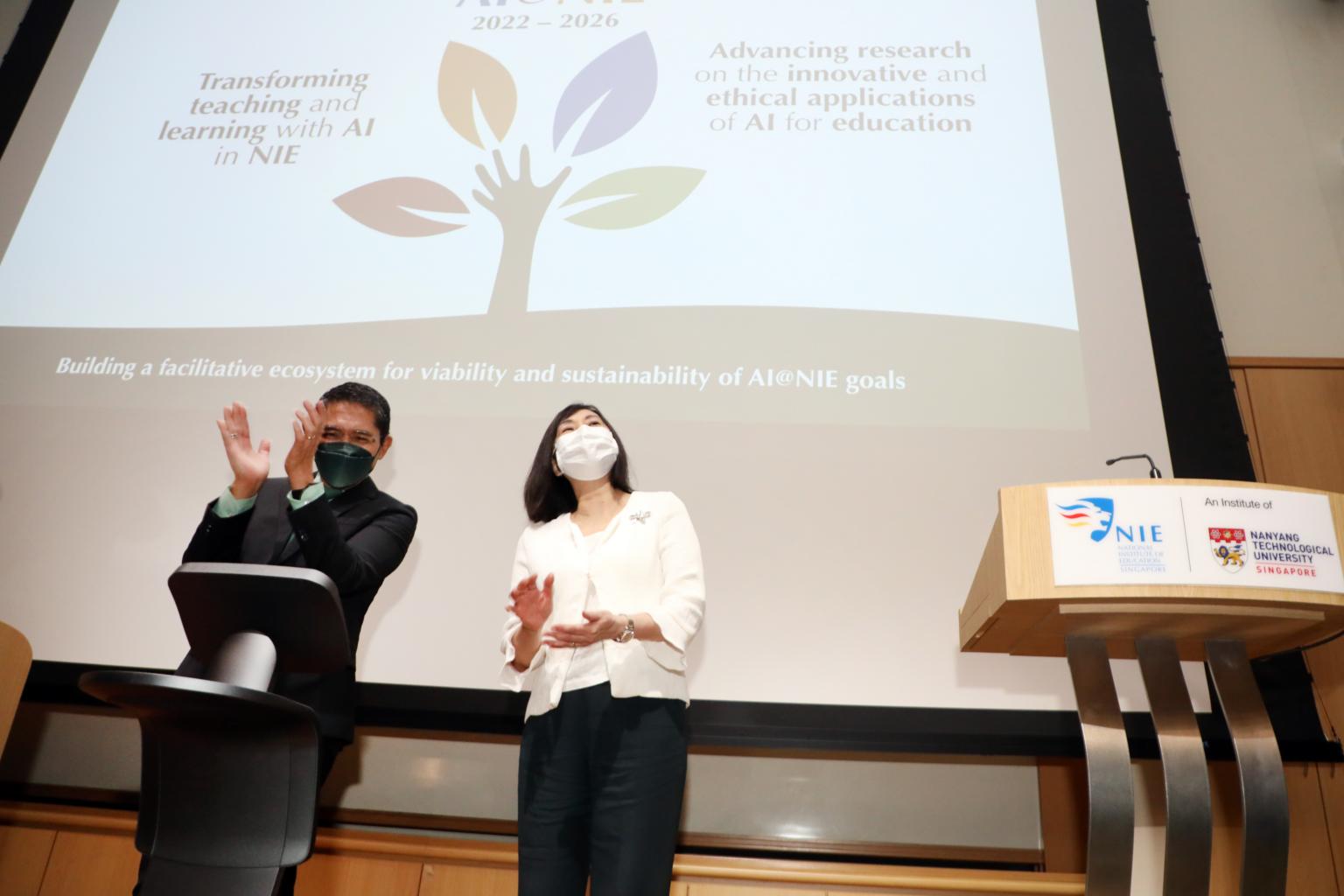NIE to train teachers in using AI in classroom, invest in research
Sign up now: Get tips on how to help your child succeed

Second Minister for Education Maliki Osman and NIE director Christine Goh at the launch of the AI@NIE programme.
PHOTO: LIANHE ZAOBAO
SINGAPORE - Teachers will be trained to employ artificial intelligence as the technology becomes more common in the classrooms and the daily lives of students with smartphones and other everyday gadgets.
By 2026, topics about artificial intelligence in education will be offered for trainee teachers at all levels, including undergraduates, post-graduate and in-service teachers at the National Institute of Education (NIE).
NIE will also invest in research and innovation to use artificial intelligence for education, it said in a statement on Wednesday (May 25).
The initiatives will be part of a new five-year plan called AI@NIE.
The programme, launched by NIE on Wednesday, is the culmination of a study on how artificial intelligence can be used in Singapore's education system.
The study was conducted by an NIE task force and working committee set up in 2020, said NIE director Christine Goh.
She was addressing an audience of about 80 people who participated in person and who had tuned in virtually for the event held at NIE, which is part of the Nanyang Technological University campus in Jurong.
Second Minister for Education Maliki Osman in a speech said Singapore is in a good position to tap opportunities created by the use of artificial intelligence.
The country's digital infrastructure is well developed, it is well connected to the Internet and most Singaporeans are digitally literate, he added.
He said: "We are exploring new applications of technology, including the application of artificial intelligence technology across sectors ranging from transport and municipal services, to healthcare and of course, education."
The Education Ministry is already using some artificial intelligence tools in classrooms, such as text-to-speech and speech evaluation programs in the learning of Chinese language, he added.
In August last year, The Straits Times reported that upper primary and secondary school students will soon get instant feedback on English assignments when a new marking system powered by artificial intelligence is rolled out on the school learning portal in two years.
The automated system will correct the student's grammar, sentence structure and expression, among others, when MOE rolls it out on the Student's Learning Space or SLS.
Given that such digital infrastructure is available - and hastened by the pandemic - the time is ripe for NIE to capitalise on artificial intelligence, said Associate Professor Tan Seng Chee.
Prof Tan, who is NIE associate dean for graduate education by research, said NIE is interested in adopting technology for the benefit of all teachers and students.
He said: "When the programme is ready, it should benefit all teachers and we will also introduce practising teachers to these courses."
Professor George Siemens, who gave the keynote address, said artificial intelligence has the ability to force systemic change to education systems around the world.
Speaking on the sidelines of the event, he said artificial intelligence could contribute to creating an education system that is personalised for each student, according to his strengths and interests, and adapts to how he learns.
Prof Siemens, who is director of the Centre for Change and Complexity in Learning at the University of South Australia, said: "It could help schools to nurture and empower individual students."


